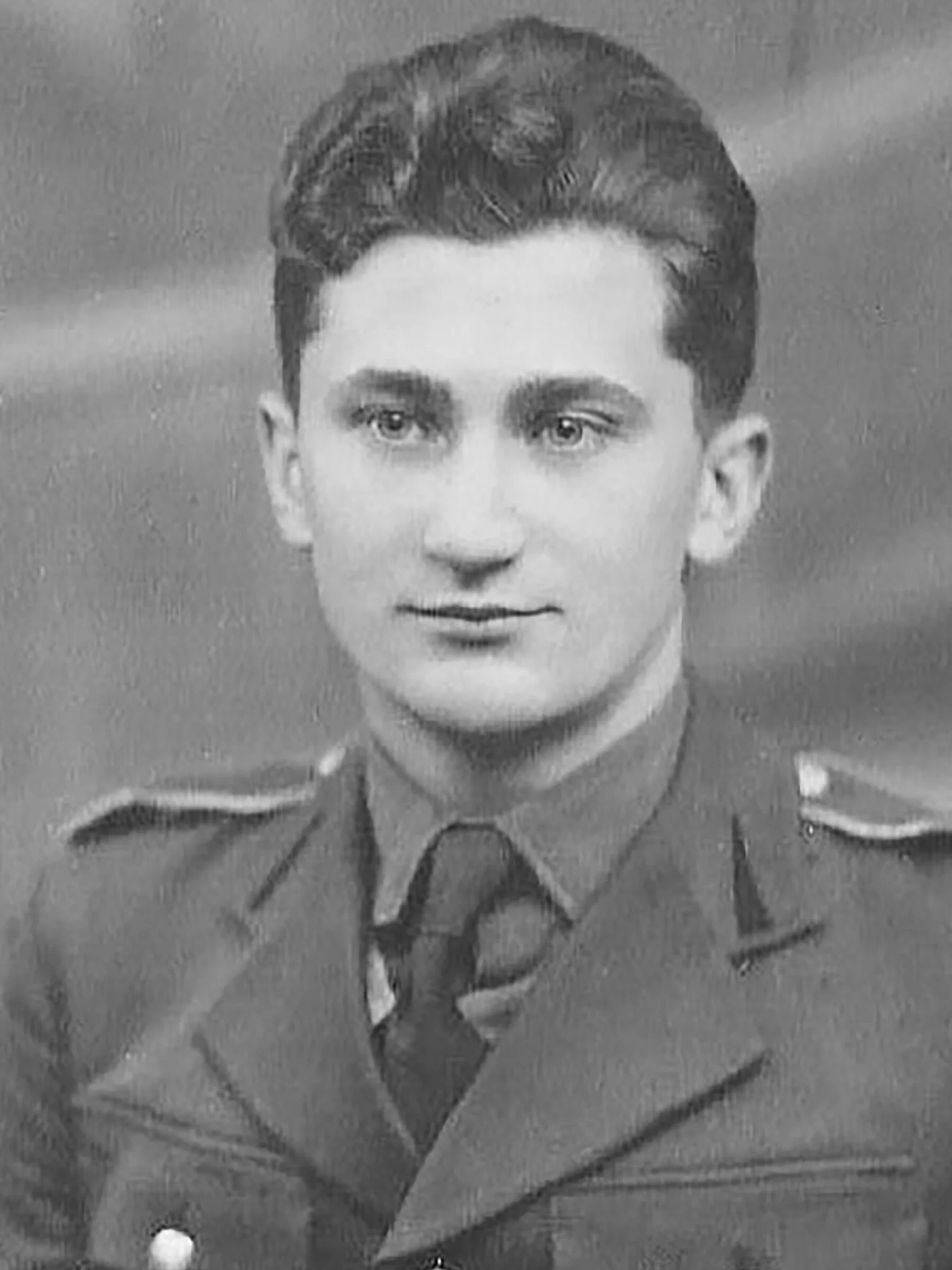Stanislaw Zawerbny
Stanley with his daughter Patricia Young © Jennie Milne 2018
Stanlislaw Zawerbny © Patricia Young
Stanley Young (Stanislaw Marek Zawerbny) was born on 25th April 1919 and lived in Winniki, near Lwow. He studied classical languages until the outbreak of war in 1939. When the Russians invaded Eastern Poland, Stanley escaped to Romania with his brother, Adam. Whilst there the brothers were separated and Stanley, using his skill with languages picked up enough of the local language to pass as a Romanian and ultimately escape.
He made his way through Yugoslavia and Greece, to Marseille, where he joined the Polish Army. Adam also made his way to France. Stanley had 2 other brothers - Zbigniew who was killed in Poland, and Kazimir who fought in the battle of Monte Cassino. Shortly after his arrival France surrendered to the Germans and Stanley, along with the platoon of 10 men he had been given to command was given the instruction to make his way to the coast and join the Polish Forces under British command in the U.K. According to Stanley, every time he arrived at a port the town was either taken, or the boat he was trying to board with his men was blown up or had sailed. This continued all the way down the coast. As a result, he and his men walked for miles, going further and further south until finally they boarded a boat at the last port (St Jean de Luz) and arrived in Liverpool in 1940.
Stanley with a map of his escape drawn by a child. © Jennie Milne 2018
From here he was posted to Scotland where he was stationed in Fife to man the coastal defenses, also working at signals in Dundee for a time. Stanley’s intelligence and skill with languages saw him rise through the ranks and found him working at the Supreme Headquarters of the Allied Expeditionary Forces (SHAEF) commanded by General Dwight L Eisenhower towards the end of the war. He was awarded the Legion of Honour in 2017 for his duties in SHAEF.
After the war Stanley continued his studies and graduated from St Andrews University in Scotland. He married and had two children. He almost returned to Poland with his wife, but his father wrote to him and warned him not to return to Poland under any circumstances.He was sent by the British Government as a teacher to Northern Nigeria where he spent 12 years with the Colonial Services. He describes this time as “The twelve most glorious years of my life “.
He also taught at schools in Fife and Edinburgh on his return. His parents were able to visit the U.K. to see him when his children were small and in later years, after the fall of Communism, Stanley returned to Poland to visit his old home. He still has his old train ticket from Winniki to Lwow.
Stanley’s video testimonial is one of 600 stories about Europe that marked the 60th anniversary of the signing of the Treaties of Rome. Despite his advanced years he was able to take part in 3 films during 2016 including ‘Scotland’s Memoir’ and ‘Life Stories, Scottish Polish Heritage’ included in an exhibition at the Scottish Parliament.He now lives in a care home in Edinburgh near his daughter Patricia, and states he is grateful to Scotland and is proud to be a Polish Scot. Patricia is passionate about her Polish heritage as was her late brother George, who researched their family tree and changed his name to Zawerbny before he died. Patricia has visited Winniki 3 times with her father. Stanley sadly passed away in 2019 at the age of 100, the last surviving Polish soldier living in Edinburgh.
With thanks to Stanislaw and Patricia Young



